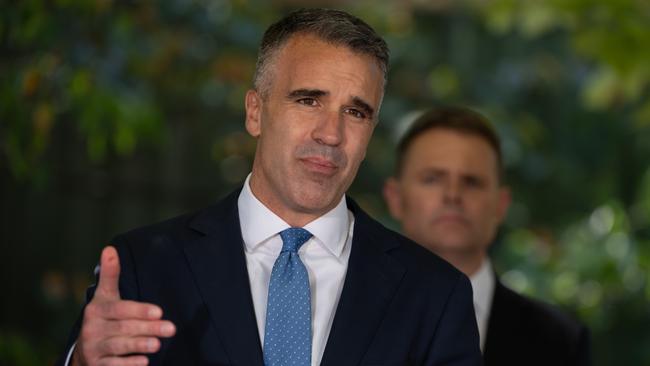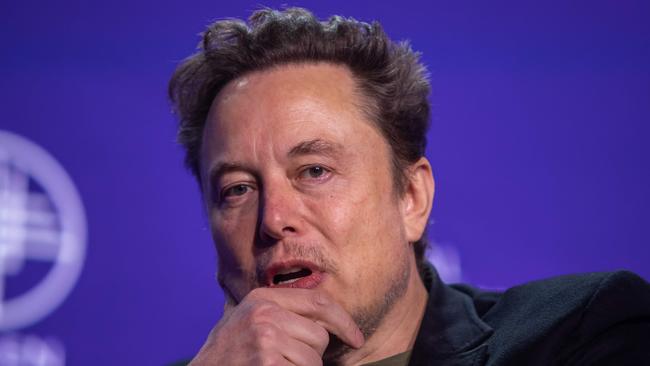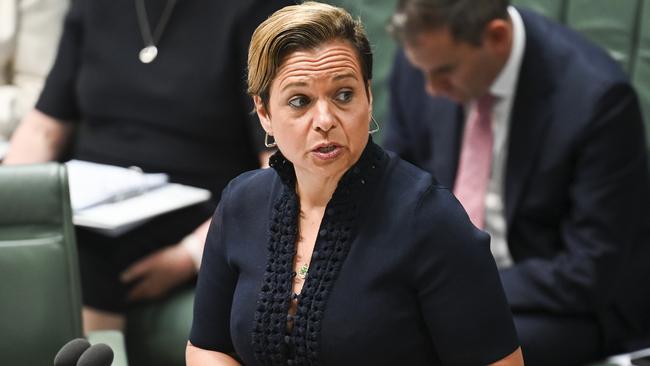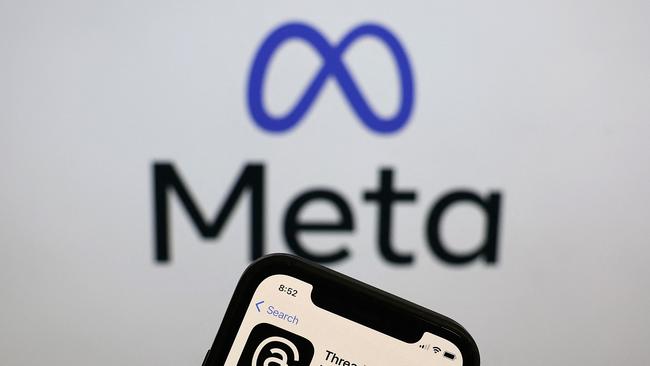South Australia appoints high court justice to examine banning social media for kids under 14
As parents grow more worried about the pernicious effects of social media on youngsters, one state is moving to ban it all for kids under the age of 14.
South Australia is moving to ban social media for children under the age of 14, as parents and legislators grow increasingly alarmed about the pernicious effects of digital platforms on the development of children.
The state government has appointed former High Court chief justice Robert French to conduct a legal examination into banning accounts for children, with the legal guru set to report on the regulatory and technological “pathways” the government might pursue to institute its prohibition.
Alongside the ban, the government’s policy would also require parental consent for children aged 14 and 15.
The changes, if legislated, would make South Australia the first state in the country to impose a ban.
In March, the US state of Florida banned social media accounts for children under 14, while Texas has legislated to require parental consent before a user under the age of 18 can open an account.
Spain bans children under 14 from accessing a social network.
South Australian Premier Peter Malinauskas, a father to four children, said the new push had come from a growing body of evidence demonstrating a clear link between social media use and adverse impacts on development.

“Like most parents, I am concerned about the impact social media is having on children in our community,” he said.
“We are seeing mounting evidence from experts of the adverse impact of social media on children, their mental health and development.
“I am determined to ensure as a government we are doing everything we can to protect our children.”
A 2024 survey from Australian mental health service ReachOut found social media was the “number one” issue of concern for parents and carers about their child’s development, with 59 per cent saying they were concerned about their child’s use of social media and 55 per cent saying social media had a significant impact on their child’s wellbeing.
Social media platforms like Facebook, Instagram, X and TikTok are widespread, popular and easily accessible to children.
Carly Ryan Foundation CEO Sonya Ryan said social media presented a “profound risk of harm” for kids.
“Children do not have the life experience or the cognitive and executive functioning to think through harmful situations online, sometimes placing themselves at real physical risk,” she said.

“Children are exposed to harmful content, including dangerous viral trends, pornography, online predators looking to sexually exploit them, cyber-bullying and sextortion.
“Numerous studies show that social media use among young children is linked to adverse effects, including unrealistic expectations and perceptions, which can lead to severe depression, anxiety, inadequate sleep, low self-esteem, poor body image, eating disorder behaviours and online harassment.
“In my opinion the only way forward is to create appropriate legislation to protect our children from these harms and regulate big tech companies to include mandatory age verification across all platforms.”
On a post to X on Sunday night, Mr Malinauskas encouraged the tech giants to “engage” with Mr French’s examination.
“For social media companies, we’ve made it clear, there is global change happening here and I would invite them to engage with Robert French in this piece of work, rather than resist it and fight it,” he said.
“We would certainly welcome that engagement to make sure we get it right.”
The push comes as a national debate erupts over the role and influence of social media in society, with anger building over Meta’s decision to abandon the News Media Bargaining code and the proliferation of violent imagery and footage on platforms.


The federal government is moving to establish a Joint Parliamentary Select Committee “into the influence and impacts of social media on Australian society”.
“Social media is how millions of Australians connect, access news and run small businesses,” Communications Minister Michelle Rowland said last week on announcing the new inquiry.
“These social media companies have enormous reach and control over what Australians see with little to no scrutiny.
“In our democracy, it is imperative that Australians have access to quality public interest journalism, including on social media. Unilateral decisions to undermine news hurts us all.
“Social media companies have social responsibilities. They need to be more accountable and transparent.
“Parliament needs to understand how social media companies dial up and down the content that supports healthy democracies, as well as the anti-social content that undermines public safety.”






To join the conversation, please log in. Don't have an account? Register
Join the conversation, you are commenting as Logout